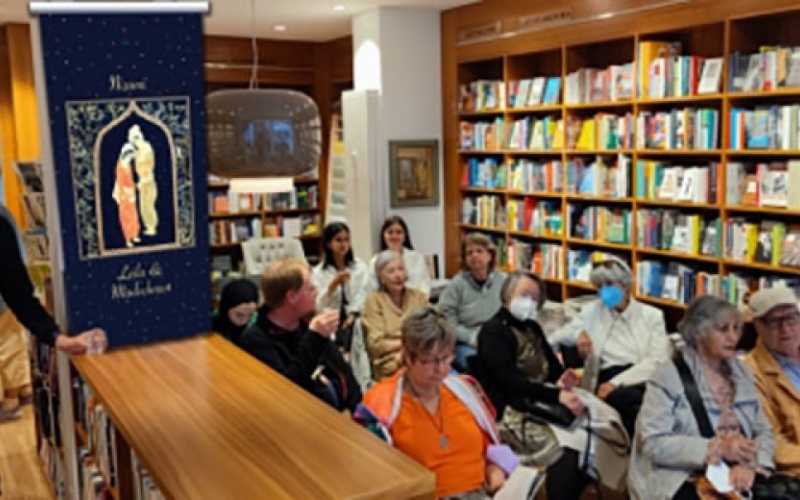
In his opening remarks, Zieglinde Hartmann, a notable German scientist and professor at the University of Würzburg, spoke about Nizami Ganjavi’s rich literary heritage and the deep philosophy of his works.
Hendrik Boeschoten, professor of the University of Mainz, well-known Turkologist, expressed his views on the diversity of Nizami’s works in terms of originality, harmony of ideas and meanings expressed in the poems with our days, and answered questions from the participants.
In his speech, Hans Jurgen Maurer, the publisher, said that although Nizami Ganjavi is a classical poet of Azerbaijan, it is a pity that he is still presented in many sources, including Wikipedia as a Persian poet. Furthermore, he noted the importance of such projects in spreading the real truth about the national identity of the great poet in the world: “The real truth is that the great poet was born in Ganja, now the second largest city of Azerbaijan, never left his native city, created his works only there and was buried in Ganja. While visiting Azerbaijan, I also visited the mausoleum of the great poet in Ganja.”
In conclusion, Stephane Bittoun, a famous German actor, performed excerpts from the poem “Leyli and Majnun.”
The translator of the poem is Rudolf Gelpke, a renowned German translator. The book, first published by the Manesse Verlag in Zurich, Switzerland in 1963, had a preface introducing Nizami Ganjavi to German-speaking readers as a “Persian poet”. On the initiative and by efforts of the State Translation Centre, a book with a new foreword was published, which for the first time presented Nizami Ganjavi to the readers of the German-speaking countries as a “great Azerbaijani poet.”
Views: 183
